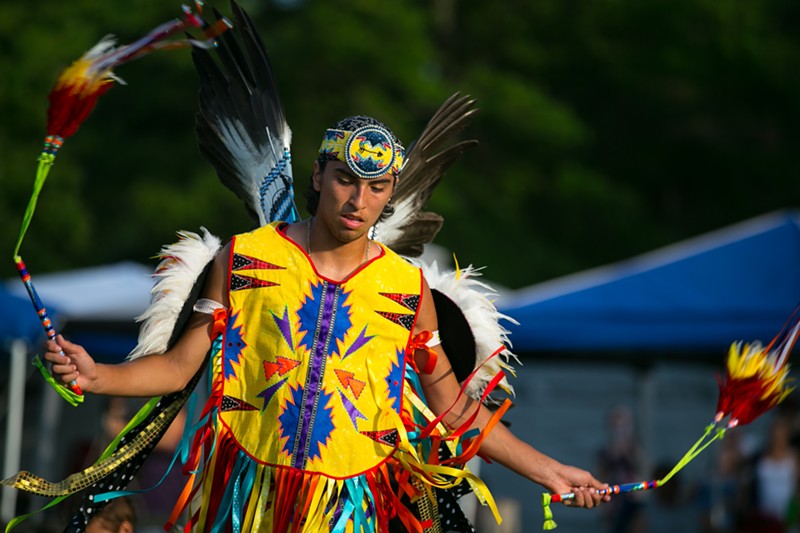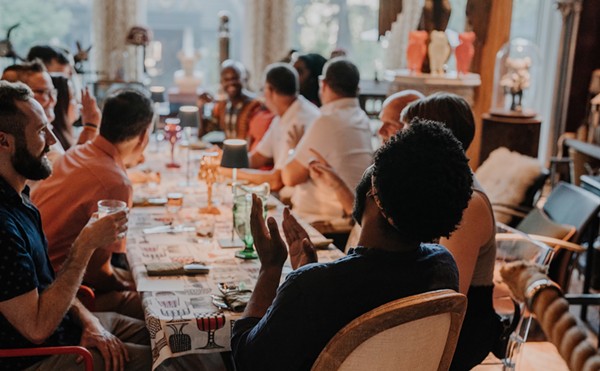
Darlene Stanley / Shutterstock.com
A young male fancy dancer at the Little River Band of Ottawa Indians annual Pow wow, in full regalia.
Because federally recognized Native American tribes operate as sovereign nations subject to federal law — and because the federal government still considers marijuana to be a Schedule 1 drug — Michigan's Native American tribes say they feel left out of the state's nascent recreational cannabis industry.
That's according to a news brief from MiBiz, which reports that Michigan tribes say the risks of getting involved in the new industry outweigh the potential economic benefits.
"In Michigan, any old white guy can open up a cannabis store and make a bunch of money, why can’t we?" Attorney Tanya Gibbs, a partner at Rosette LLP in Grand Rapids, told MiBiz, describing the discussions among Native American tribes in the state.
"Many of the tribes in Michigan are still heavily reliant upon federal grant money," Gibbs told MiBiz. "Those grant dollars come with certain restrictions and ties and requirements. That poses a problem for some of the tribes who are considering the (cannabis) business. How do we do this in the right way without risking those federal dollars that provide real services to our people?"
In recent months, Michigan's new Marijuana Regulatory Agency has tried to bring social equity to the new recreational cannabis industry. In July, it issued emergency rules that lowered the barrier of entry for small businesses to enter the market; previously, business licenses could cost hundreds of thousands of dollars. Later in July, it further reduced license fees in communities with high poverty rates and high marijuana convictions.
The MiBiz report says the tribes are looking into lobbying on the state and federal level. The state of Washington could provide a possible model as to how to proceed, where tribes formed a compact with the state to define marijuana rules on reservations. The model is similar to how tribal gaming agreements work in Michigan.
You can read the full MiBiz report here.
Stay on top of Detroit news and views. Sign up for our weekly issue newsletter delivered each Wednesday.






